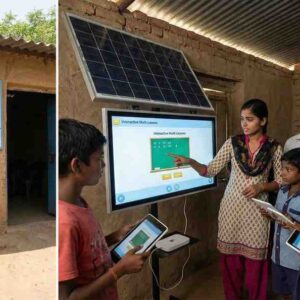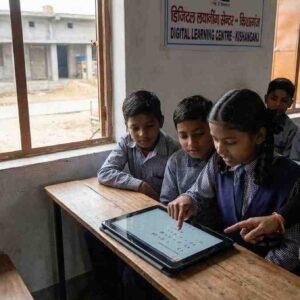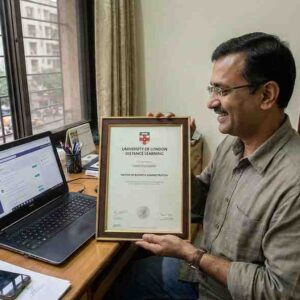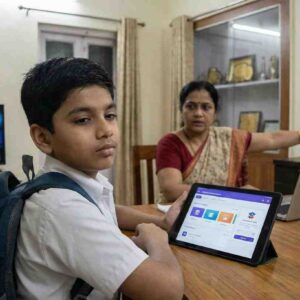In a world teeming with incessant change and ever-evolving demands, the Indian education system stands at a crossroads. Traditional learning methodologies, which once dominated classrooms, are making way for a more inclusive and comprehensive approach—holistic education. This educational paradigm shift not only addresses the intellectual needs of students but also nurtures their emotional, social, and physical development, crafting well-rounded individuals poised for long-term success.
A Multi-faceted Approach to Learning
Holistic education transcends the conventional focus on rote memorization and high-stakes testing. Instead, it integrates a spectrum of learning experiences designed to foster critical thinking, creativity, and problem-solving skills. This approach equips students to navigate the complexities of the modern world, transforming them into agile thinkers and lifelong learners.
In the bustling cities and quiet hamlets of India, schools are beginning to recognize the profound benefits of educating the ‘whole child.’ This method emphasizes the importance of emotional intelligence and resilience, components as crucial as academic achievements. By incorporating elements such as mindfulness, environmental awareness, and ethical teaching, holistic education promotes a balanced curriculum that prepares students to thrive in both their personal and professional lives.
Cultivating Global Citizens
The essence of holistic education lies in its ability to bridge diverse cultures and global perspectives, preparing students to become global citizens. With the advent of globalization, the ability to understand and respect multicultural viewpoints is indispensable. Holistic teaching methods encourage students to explore global issues, participate in community service, and engage in cultural exchanges, enriching their educational experience and broadening their worldviews.
Such exposure not only enhances cultural competence but also instills a strong sense of global responsibility, driving students to contribute positively to society. As they develop a deeper understanding of the world around them, Indian students are uniquely positioned to navigate and influence the global landscape.
Technology Integration in Holistic Education
In an age dominated by digital innovation, integrating technology into education has become imperative. Holistic education leverages cutting-edge tools to make learning more engaging and accessible. From virtual reality (VR) that brings historical events to life to artificial intelligence (AI) that offers personalized learning paths, technology enhances educational outcomes and supports the diverse learning styles of students.
Moreover, by incorporating digital literacy into the curriculum, holistic education prepares students for the digital economy, equipping them with the skills necessary to succeed in technology-driven environments. This integration not only enriches learning but also ensures that students are adaptable, tech-savvy, and ready to meet the challenges of the future.
Nurturing Creativity and Innovation
At the heart of holistic education is the encouragement of creativity and innovation. Through project-based learning and interdisciplinary courses, students are encouraged to think outside the box and apply their knowledge in innovative ways. This emphasis on creative problem-solving is crucial in today’s fast-paced world, where innovation is the key to progress and sustainability.
By fostering an environment where ideas flourish, holistic education cultivates the inventors, thinkers, and leaders of tomorrow. These individuals will drive societal advancements and spearhead efforts to solve pressing global issues, from climate change to technological disruption.
Conclusion: A Beacon for the Future
As India continues to evolve and make its mark on the global stage, the shift towards holistic education is not just beneficial but essential. By focusing on the comprehensive development of students, holistic education not only enhances academic performance but also equips young minds with the skills, ethics, and empathy needed to excel in life. This approach is a beacon for the future, promising a generation of well-informed, responsible, and compassionate leaders who are ready to take on the world’s challenges. Holistic education in India is not just an educational reform; it is a revolution that molds the very fabric of society.










